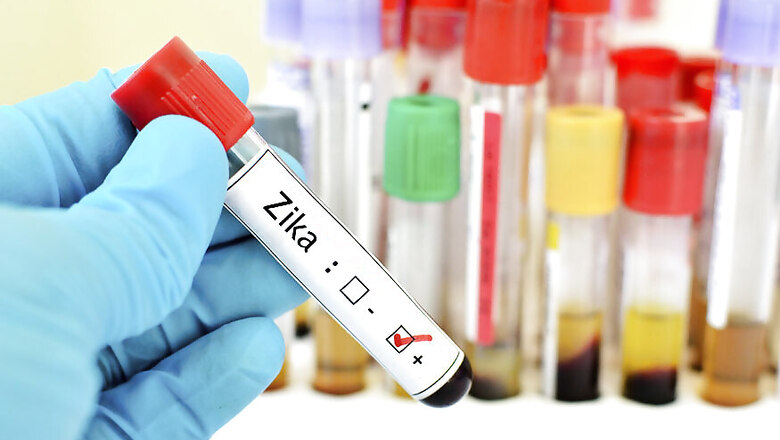
views
First discovered in monkeys in Uganda in 1947, the Zika virus is a mosquito-borne flavivirus which was later identified in humans in 1952 in Uganda and the United Republic of Tanzania. Since then, the outbreak of Zika virus has been recorded in Africa, North and South America, Asia and the Pacific.
Between the 1960s and 1980s, rare cases of human infections accompanied by mild illness, were recorded across Africa and Asia. Notably, India confirmed their first case of mosquito-borne disease Zika on September 21, 2018. The Ministry of Health and Family Welfare-Government of India (MoHFW) reported a confirmed case of Zika virus infection in a 78-year-old woman in Jaipur, Rajasthan. Protection from mosquitoes becomes an important aspect in preventing the Zika virus outbreak.
Here are a few facts one needs to know about the mosquito-borne disease
The first recorded outbreak of the Zika virus disease was reported from the Island of Yap in 2007. This was followed by a larger outbreak of the Zika virus infection in French Polynesia in 2013 and in March 2015, Brazil reported its first Zika virus infection.
In July 2015, the Zika virus was found to be associated with the Guillain-Barré syndrome and in October of the same year, an association was established between Zika virus infection and microcephaly.
Notably, the Zika virus is an arbovirus, a broad classification, which means it is a virus that is transmitted by an arthropod — a mosquito, a tick, or a flea.
A member of the virus family flaviviridae, the Zika virus is spread by daytime-active Aedes mosquito such as A. aegypti and A. albopictus.
Zika virus belongs to the same family as the dengue, yellow fever, Japanese encephalitis, and West Nile viruses.
The infection often causes no or only mild symptoms, similar to very mild form of dengue fever and while there is no specific treatment, paracetamol and rest may help with symptoms.
Similar to other flaviviruses, the Zika virus is enveloped and icosahedral in nature and is closely related to the Spondweni virus.
A study has shown that 6 hours after cells are infected with Zika; the cells begin to swell and lead to cell death.
Zika can be transmitted from men and women to their sexual partners and as of April 2016, sexual transmission of Zika has been documented in six countries that include Chile, France, Italy, New Zealand, Argentina and the United States.
While there are no approved vaccines for Zika, a number of clinical trials are going on with the goal to create protective antibodies against the Zika virus to prevent infection and severe disease.

















Comments
0 comment